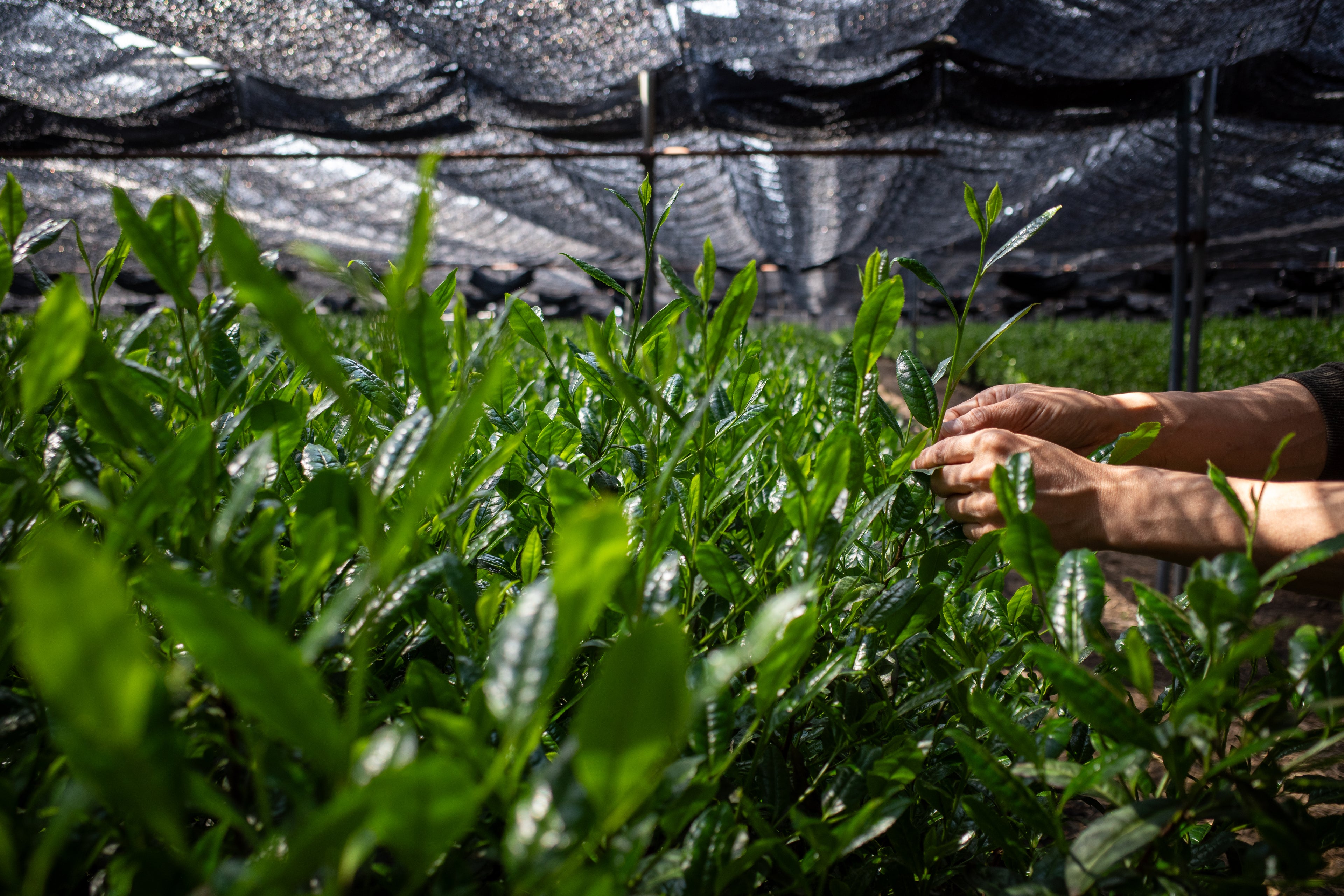Written by a mindfulness tea teacher, Miki Sensei.
I was asked to share my tips on the art of omotenashi (the Japanese philosophy of hospitality). While there are surely as many "right answers" as there are people and cultures, I believe there are certain common essences that exist across cultures.
First, let's explore hospitality within the world of tea.
Two representative Zen phrases express the relationship between host and guest:
Shuhin Rekizen (賓主歴然): The importance of the host being the host, and the guest being the guest; each fulfilling their role.
Shuhin Gokan (賓主互換): The importance of host and guest receiving each other's intentions, stepping into each other's perspective with care and consideration.
In short, at the core of these expressions lies ichiza konryu (一座建立), the heart of the chanoyu tea ceremony and the structure that supports it. A gathering in the tearoom is not merely a creation of the host's doing. The guests, the assistants, the utensils, the flowers, even the invisible breeze and fragrance, each has a role and contributes in harmony to the collective experience, supporting one another to form a shared space.
Once the day of the gathering is set, the host begins preparing.

Traditionally, every element—from the tea scoop and whisk to the tearoom itself—might be crafted or adjusted explicitly for that gathering, some even dismantled afterward. To grace the gathering for just a few hours, materials are sourced from the mountains and the seas (chiso - 馳走), the tearoom is purified inside and out, tools are carefully chosen and arranged, all so that every element can be at its most vibrant when welcoming the guests. The host tends to every moment with that intention.
The guest, on the other hand, has their own practice. They enter the space not as passive recipients of service, but as active participants, bringing the awareness, knowledge, and experiences to recognize the host's countless considerations.
Interestingly, the English word "host" is believed to come from the Latin "hospes," formed from "hostis," meaning "stranger/guest," and "potis," meaning "master."

In other words, as Fujii Kaze sings in his song Grace, "I am you, and you are me." To exchange each other's thoughts, to attune to each other's position, to support and be supported within the same space...This, I believe, signifies a truly enriching way of coexisting on this earth.
With that in mind, when I am asked what my own practice of omotenashi is, I think about this: What do I wish to share?
Should I approach hospitality with a one-sided intention only to give or create, that mindset becomes an obstacle. When I am a part of the tearoom, my energy becomes woven into the gathering. What I feel is what the others will receive. If I am too self-focused or controlling, that energy will be felt by everyone present, and it is rarely a comfortable experience. The host is tasked with creating a space based on the theme they wish to share, while also leaving room for the guest's sensibilities and responses. This facilitates co-creation.
In preparation, I imagine the guest's position and feelings for that day, and I simulate the flow of the gathering. By the time the gathering begins, it has already unfolded in my mind several times. So, more than ninety percent of the work is completed before the first guest arrives. During the actual gathering, I simply immerse myself in the flow, wholly focused on the guest before me and on the tea I prepare.

Of course, that is the ideal scenario. In reality, life brings surprises every time. However, the practice of tea is learning to embrace the unexpected, to welcome any occurrence with a calm heart.
This is why I call my tea gatherings "sessions." A space that is not perfectly orchestrated, where diverse lives meet and interact, embodies, to me, the true joy of living. If each person who joins my session departs at the end of the day feeling, "I'm glad I was here. I'm glad I came," then I feel I have fulfilled my modest role.
The capacity to affirm and celebrate oneself in this moment becomes an affirmation and blessing for one's past, future, and all the interconnected lives. To share such a moment fills my heart with profound joy.

Whether you're having tea in solitude or simply moving through daily life, I encourage you to place your awareness on what you are feeling right now. In that awareness, you can sense both the responsibility and the hope embedded in the world you are crafting each day.
Omotenashi begins with "me, here, now."
Let's continue to refine and cherish each moment as a chance to practice.
Written by:
 |
Miki Fujisaki, hibana to bloom founder, mindfulness tea facilitator/coach Website: https://www.hibana-to-bloom.com/ Instagram: @hibanatobloom |
Miki was born in Osaka and began her journey in Urasenke Chado while working as a Japan Airlines cabin attendant. During her time in London, she planned and managed Japanese cafes ("Matcha" and "Cha no Ma"), and after her return to Japan, she oversaw international project planning.
To deepen her understanding of spaces and relationships where individuals coexist, illuminate, and nurture, Miki studied coaching and facilitation. Currently, she holds tea gatherings and coaching sessions for individuals and companies in tea rooms, offices, online, and overseas. Her work is centered around the theme of interbeing, cultivating a sense of interconnectedness, mindfulness, and "here-and-now."

